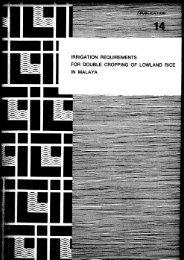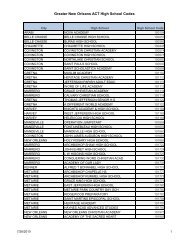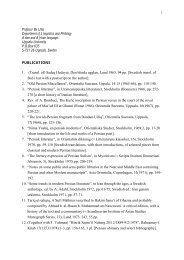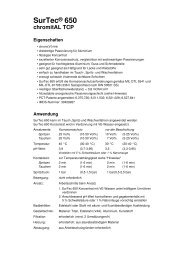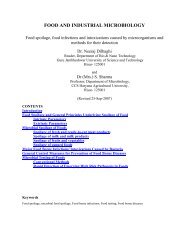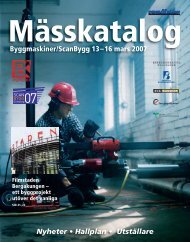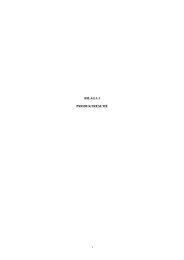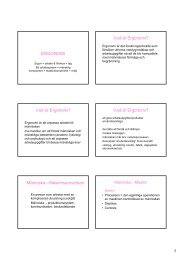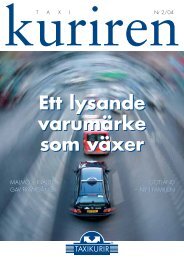On the Future of Indigenous Traditions - Munin
On the Future of Indigenous Traditions - Munin
On the Future of Indigenous Traditions - Munin
Create successful ePaper yourself
Turn your PDF publications into a flip-book with our unique Google optimized e-Paper software.
saying she was illegally building house on his property. Whereas Bodra claimed, this<br />
land originally belonged to Jena Bodra, his fa<strong>the</strong>r’s elder bro<strong>the</strong>r, who had given it to<br />
him before this old man died issueless in 1965. The sales deed Kui produced in this<br />
case is <strong>of</strong> 1961 when she claims to have legally obtained it with <strong>the</strong> thumb impression<br />
<strong>of</strong> Jena Bodra. Jogesh Bodra challenges it by asking why Jena would make a thumb<br />
impression on <strong>the</strong> sales deed instead <strong>of</strong> signing on <strong>the</strong> document, since Jena was a<br />
literate and an educated man. However, witnesses <strong>of</strong> both sides were not aware <strong>of</strong> <strong>the</strong><br />
sale <strong>of</strong> this land to Kui when cross examined. Bodra also argued that this land’s tax<br />
receipt (which obviously would have Jena’s name and not his) was with him because<br />
he had been paying tax for it. This was his basis <strong>of</strong> claming his ownership over this<br />
particular plot <strong>of</strong> land. Bodra lost <strong>the</strong> case because <strong>of</strong> <strong>the</strong> documentary pro<strong>of</strong> Kui had<br />
obtained from <strong>the</strong> district <strong>of</strong>fice through a lawyer <strong>the</strong>re.<br />
4.6. Analysis<br />
What is particularly important and also at <strong>the</strong> same time different in <strong>the</strong>se two cases<br />
from Charai Pir? From <strong>the</strong>se two case illustrations <strong>of</strong> Lakshmi and Jambo Kui we<br />
can conclude:<br />
- That <strong>the</strong> merits <strong>of</strong> <strong>the</strong>se cases are seen rationally and with sufficient evidence to<br />
back up <strong>the</strong> arguments <strong>of</strong> both <strong>the</strong> parties involved in <strong>the</strong> case. In its proceeding<br />
this court follows more or less <strong>the</strong> same principals <strong>of</strong> <strong>the</strong> district and <strong>the</strong> state<br />
court system, however, with no bureaucratic stacks attached with it.<br />
- Legal documents play an important and decisive role in <strong>the</strong>se cases; however,<br />
<strong>the</strong>se legal documents which are usually <strong>the</strong> domain <strong>of</strong> <strong>the</strong> state authority here, at<br />
times can be questionable <strong>of</strong> its fairness in <strong>the</strong> way it has been obtained.<br />
- The witnesses in this court add weight and au<strong>the</strong>nticate to <strong>the</strong> arguments brought<br />
forward. However, witnesses are not only produced by <strong>the</strong> parties’ own choice to<br />
prove <strong>the</strong> matter to be in <strong>the</strong>ir favor, but also that <strong>the</strong> matter <strong>of</strong> <strong>the</strong> case is cross<br />
verified by Manki’s own sources built upon individual and social trust <strong>of</strong> <strong>the</strong><br />
members <strong>of</strong> <strong>the</strong> village and larger community. Fabricating evidence to some one’s<br />
own advantage usually has less room, as <strong>the</strong> court process is more open and more<br />
93





